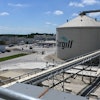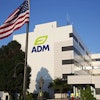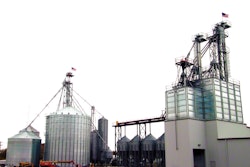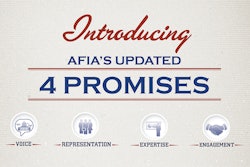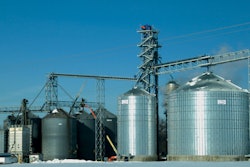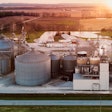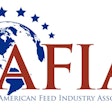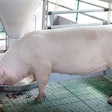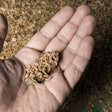The way a company or business manages a crisis can make or break their reputation. The stakes are higher today than they were a decade ago thanks to new media and instantaneous news. No matter the size of your operations, a plan of action is necessary.
What is a crisis?
A crisis is a critical decision point or event that has the potential to inflict significant damage to either an operation or reputation, a definition used by Laurel Kennedy, founder of Blink and past senior executive with Edelman and Ketchum.
Kennedy said that within agriculture, environmental contamination, water consumption, GMO’s, bacteria in crops, contaminated feed, and animal borne disease are all areas for concern.
“No one is isolated, everyone’s exposed, and we operate in a 24/7 news cycle,” Kennedy said.
Specific to the feed and grain industry, potential areas for crisis include: contamination of feed or grain supplies and safety of employees and facilities. Even misinformation about grain products and livestock production can take a toll on sales and demand.
David Pelzer, senior vice president of industry image and relations for Dairy Management Incorporated, views crisis as an event that will impact sales, too. It’s how a company responds to a crisis that either helps them through it or can create a further crisis, he said.
Why you need a plan
Crisis today must be managed differently than a decade ago. With technological advances like social media and instantaneous news, speedy response is necessary.
“We are so interconnected in a global sense now. Something that happens in China can affect us immediately,” Pelzer said.
Regardless of the size and reach of a company or organization, Pelzer said that a crisis plan is critical because you can’t form a plan in the middle of a crisis.
Kennedy added, “You can think of it as a fire drill. You are protecting your good name and your customer relations instead of a plant or field.”
One can consider crisis planning as very similar to reputation insurance, according to Kennedy.
Even if the crisis might not catch the attention of the media, it could affect your relationships with the local community, distributors, transporters, and more.
“People need to understand the role and the process in a crisis: who does what, when, and in what order,” Kennedy said. “Your critics and competitors will control the dialogue if you don’t.”
Filling the void
Kennedy suggested that a lack of communication immediately following a crisis can be detrimental. Without planning, communication during a crisis could be delayed, overly formal or legalistic, and might leave the audience looking for more answers.
“In a crisis, if you don’t fill that communication void, someone else will,” Kennedy said. “If you want to control the dialogue, you have to be out there.”
Even prior to a crisis, it is still important to connect maintain good communication, especially now that consumers are becoming increasingly concerned with food production practices.
"More than ever, consumers are concerned with where and how their food gets from farm to table. Transporters are an important piece of this food chain, and their greatest asset is a positive reputation of safety and traceability,” said David DeLong, President of the DeLong Company.
Everything from seed to shelf is up for discussion, and without a dialogue, there is a void of communication.
Taking time to consider options to prevent and stifle crisis could have a positive impact on the agricultural industry as a whole. Proactive communication can fix a problem before it becomes a crisis.
Social media is platform that companies and organizations can build trust and a relationship with their audience. Kennedy and Pelzer agree that a presence on social media is an important aspect of crisis communication.
“The good news is that social media delivers a really authentic, believable response. The bad news is you have to know how to use it and you have to have a following for anyone to find and reach you,” Kennedy said.
There is a need for a dialogue with the local community, as well as customer, suppliers, the media, and regulators. A good relationship can help soften the blow your reputation can take should a crisis arise.
Without social media as an ongoing form of communication, that sense of trust and awareness is easily lost.
“If you are on social media in an ongoing basis, then you develop a relationship and a dialogue with your key stakeholders,” Kennedy offered. “When something goes wrong, they already have a relationship with you and are willing to listen to what you have to say.”
Creating a plan
危机计划一样重要的防止crisis, Pelzer said. A company’s response can affect the survival of that organization.
DeLong has experience with grain from production through export. During his time at the DeLong Company, crisis and safety planning has developed extensively. “It’s an ongoing process of keeping people informed and trained,” DeLong said.
His advice included identifying only one spokesperson to present the facts once a crisis occurs. No opinions should be communicated.
“Find out who the primary people are to report additional information as a crisis develops,” DeLong said.
A good crisis plan means it is strategic with clear steps of achieving the end goal: managing crisis. Know who the important stakeholders are and understand the audience. Keep your eye out for potential crisis before it occurs.
Kennedy said the features of a successful plan include: immediacy, authentic and heartfelt communication, transparency and social media component. Often, people prefer hearing a response directly from the head of the company.
Maintain continuous communication as information comes out. Take responsibility and explain the steps the company or organization is taking to address the crisis.
Pelzer points out that a plan can sound great on paper, but you will never know until an actual crisis occurs if the plan was effective or not. Run a stimulus crisis to test out ideas.
If and when a crisis does occur, measure the success of your plan. This will help you to mold your plan based on what did and did not work.
The bigger picture
Proper crisis management can have a huge impact on business operations and relationships. One poorly managed crisis can give the industry a bad image.
“We really need to work together from one commodity group or industry to the next,” Pelzer said. “I think we can do a better job of managing the negative information and misinformation about sensitive issues. The good news is we are starting to do that.”
Planning and incorporating proactive communications into your business is important to not only the feed and grain industry, but it’s also important to the perception of agriculture and food production.
“It’s vital to protect reputations and help build brands, by telling transporters’ stories, strategizing for potential crisis situations and using new media outlets to serve as a critical link between the food chain and the public,” DeLong said.

